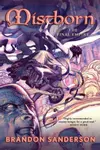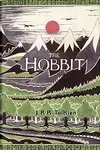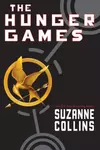Astrid Hawk's Books by Status
274 Books
See allAstrid Hawk's Reading Goals
Astrid Hawk's Pinned Lists
List
22 books2025 BotM Challenge
Clearing out the 2024 backlog + additional books to complete the "challenge" categories. Going for 100%, not just the 3 they suggest.
Astrid Hawk's Most Popular Reviews
Recommended for all nerds, people who fancy themselves nerds, and people who want to understand fantasy without taking on GRRM or Robert Jordan. This was just a fun read, period. That said, though, I'm definitely in the first class I mentioned above, so this book was basically written for me.
I was born a bit late to really understand all the copious 80s references throughout the book, but I spent enough time on emulators and friends' old consoles to have sufficient perspective to enjoy the nuances of the story. It helps to understand what vector graphics look like, what crude haptics (e.g. “force feedback”) feel like, and how Dungeons and Dragons (or similar role-playing games) basically worked. But there were certainly enough contemporary references, like Pern, Firefly, etc to ground me.
I loved this book for so many reasons that I can't possibly list them all here. The book answers some burning questions, some you might not have known you had (but I've definitely asked them all at some point):
- In an immersive virtual reality, how do you go to school? how do you conduct business?
- Do you feel pain when someone hits you? Is a blow converted to actual physical damage?
- If your online presence is an alternate you, what are the ramifications of death?
- How do you police a virtual civilization? (Note - the author answers this question by avoiding the issue entirely. There are no laws in the OASIS. He does not get into why there is not rampant needless destruction, though there could be possible explanations.)
Don't look for anything too deep in this book - there is no mind-blowing ending (in fact it's quite predictable), and no existentialist agenda or some other philosophical analog. It's just pure fun with a happy ending that makes it even more fun. About halfway through the book, when the main character's avatar starts getting more advanced, the OASIS leaves the realm of a believable online system to a complete orgy of fantasy. At times it feels that the author makes up the system parameters as he goes along, but as wild and imaginative as he gets, he does manage to adhere to the basic parameters he establishes. Sometimes it feels like the kind of story you'd tell as a child, getting more and more hard to control, but for every grounding answer an adult asks, the child comes up with some reason the story would work. Some things are easy to imagine as a possible future of gaming, but others (like codes for producing odors, for example, and the sheer volume of data that is apparently sent instantaneously over fiber-optic connections for another) are clearly just fantasy. It doesn't really matter, though, because nerds want that stuff to exist, and we're willing to overlook the impossibilities in order to imagine this as a reality. Plus, the story moves along pretty fast, so there's no time to waste considering these things.
Normally I'd only give a book a 5 if I enjoyed it so much that I think I'd want to read it again. I'm not sure this book really has that much re-read value - it's not very complex, and the story and characters are simple but memorable. It's possible that on a re-read I'd understand more of the nostalgia references... but not much else. However, it's rare that I call up friends I haven't spoken to in awhile just to recommend a book - and I did that with this book. I think that in itself is enough to push the rating to 5 stars.
Read this in English as a child and somehow never read the original version even in French class. Looking forward to experiencing it in the author's original prose. (Goodreads does a terrible job with managing multiple-language editions of the same book... hope I can make this work.)
Didn't like this one as much as the previous one - the crime solving part moved a lot slower. As is typical for Sanderson, there was a dramatic acceleration at the end, with a bit a gut-punching twist. Although I didn't enjoy Marasi's character development, and I found Wax a bit flat in this one, Wayne was even more entertaining, and I found that I'd missed TenSoon. I also enjoyed that Sanderson decided to challenge the goodness, or right-ness, of deities (even benevolent ones) in this book.
I must admit, I did not enjoy this - but I can admire the craft that produced it nonetheless. It's like reading a religious text for much of it, from the grammar style (e.g. negations after the verb - "he came not there again") to some of the vocabulary choices ("he was wroth") to the practice of summarizing action but dwelling on the who and the where.
Andy Serkis was a fantastic narrator (especially when voicing dragons - less so with female voices) -- but overall it was a mistake to listen to the audio book as my first experience with this work. I found it impossible to keep track of all the different elven and place names, who was son/daughter/sister-son etc to whom, and where they had featured in vignettes earlier. It doesn't help that many characters have multiple names in the different "tongues" that are used interchangeably in the stories, and some are similar (at least audibly) to each other. I found myself listening in no more than 20-30 minute chunks and then looking up summaries and family trees and other resources online. Even then, I know I didn't retain much of the detail... there was simply too much of it.
In the last 30 minutes the book finally veers into familiar territory in the 3rd age. It made me laugh when we got there - all along I'd been thinking "if you wanted to tell the story of the Lord of the Rings in this format, it would be no more than 5 minutes long" and sure enough - it was less than that.
Throughout this long mythological study (because that's really what it was), I kept thinking back to the hubris that created this. Tolkein himself recognized it in the (45-minute-long!) excerpt of a letter that is included in this edition of the book, and I think it's part of why he never intended to publish it. He set out to create an English language epic myth, complete with creation story, because it didn't exist outside of religious contexts. And after a few hours I just couldn't help thinking... maybe it *shouldn't* exist? There are so many more enjoyable ways to express this creativity and these ideas.
Regardless, I powered through, because I've long felt that I can't claim to be a fan of Tolkein's work without ever having read The Silmarillion. After reading it (and having the context of his letter), I realize I was wrong. You can't fully understand Tolkein's work without understanding the context in which it was created, but a reading of The Silmarillion reveals more about Tolkein's view on enduring literature than on his main works themselves. And... as mentioned... he was never planning to publish this anyway.


































